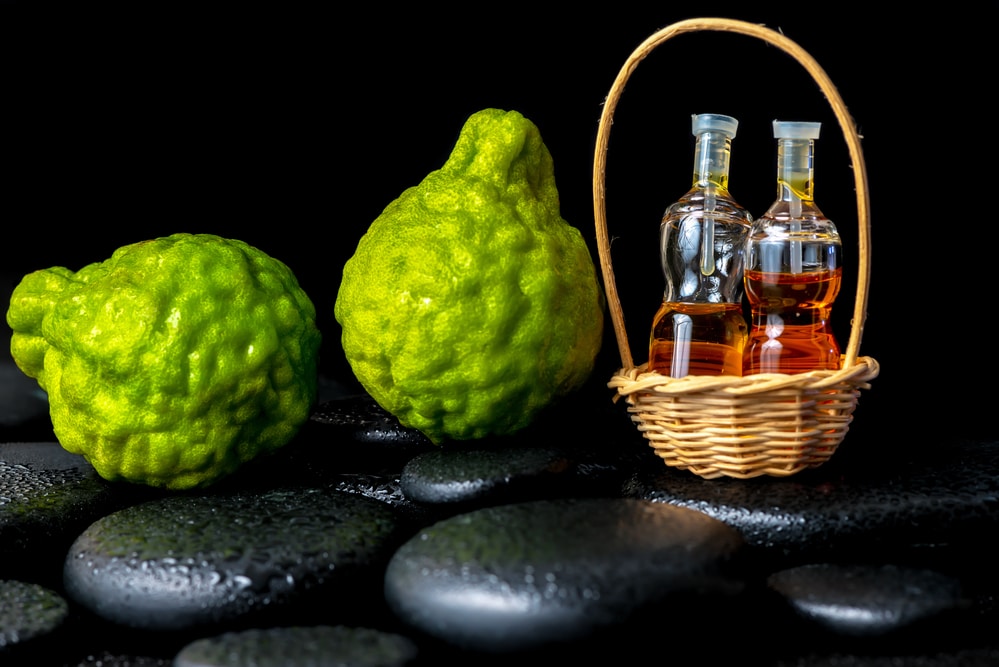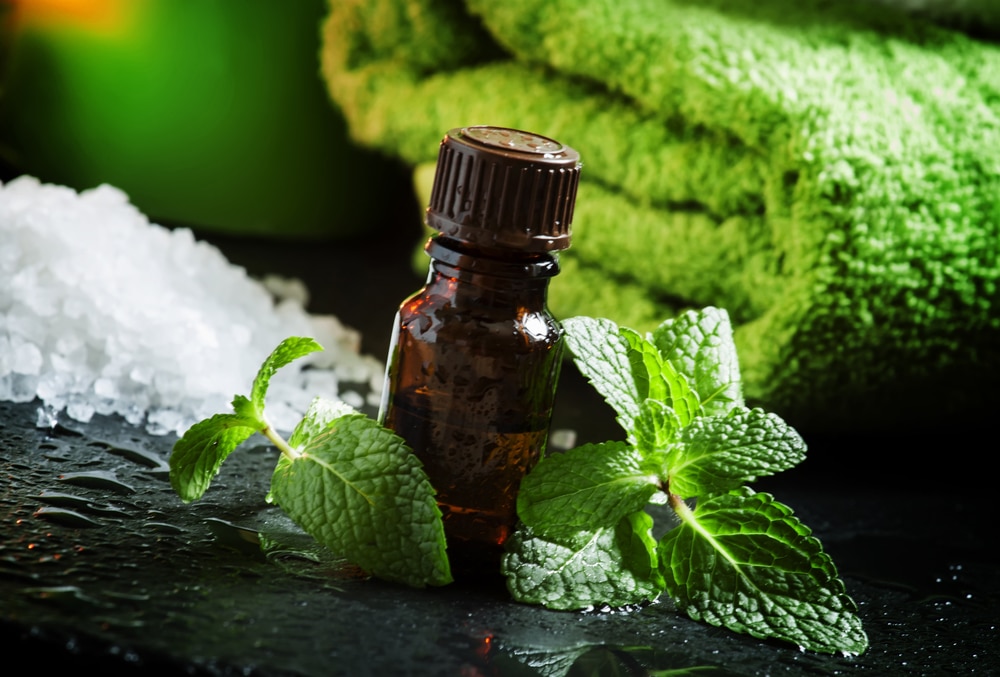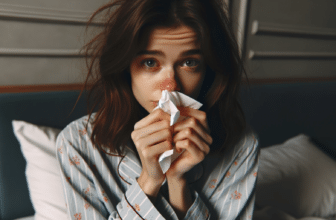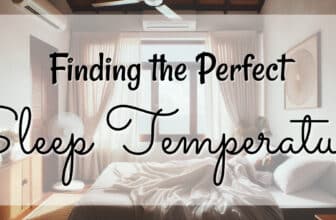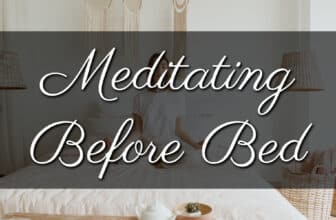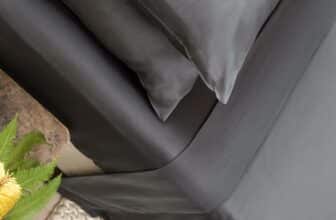Essential oils have been used for aromatherapy and in folk medicine throughout history. Not all essential oils are medically proven but many are. They use these as an alternative homeopathic remedy around the world. This is because they are natural and effective. They may work differently for a variety of people, some better than others. But, many folks experience extreme benefits from using essential oils for sleep in just a short period of time.
What Benefits Can You Expect from Using Essential Oils?
Essential oils have proven to be especially effective for most people in the realm of sleep. They help by facilitating relaxation and improving quality of sleep. Some have sedative properties, like chamomile and ylang-ylang. These essential oils enable you to not only go to sleep faster but to sleep more soundly once you do.
Essential Oils in Your Nightly Routine for Relaxation
It can, over time, train your body to recognize the scent and know that it’s approaching bedtime. Association of a specific aroma with bedtime will make your body naturally start to transition for sleep. This will also contribute to your overall relaxation and ability to rest quickly and easily.
Essential Oils Instead of Sleeping Pills
To cope with restless sleep or insomnia folks use essential oils because they are all natural. You do not run the risk of becoming physically addicted to essential oils. With essential oils, you also avoid all of the negative side effects that are common with sleeping pills. Examples include drowsiness during the day, sleepwalking, or any of the more severe side effects that are not uncommon. Also, essential oils do not require a prescription or a doctor’s consultation for extended use.
Essential Oils for Overall Health
Aside from promoting sleep, essential oils have also been known to help relieve stress, lower blood pressure, alleviate hypertension, increase circulation, and reduce anxiety.
With all of the choices surrounding the many different types and scents of essential oils, brand names, and ways to use them, it can be hard to know where to start. That is ok though, experimenting and finding what works best can be part of the fun. Let’s take a look at the most recommended essential oils for promoting sleep and the different ways to use them so you can get started and head in the right direction.
What are the Most Common Aromatherapy Essential Oils Used to Help Promote Better Sleep?
As I am sure you know, there are many different types of essential oils. We can use all of them for different purposes. Fortunately, when it comes to helping you sleep, you have a lot of options to experiment with. Aromatherapy essential oils work differently for everyone so do not be surprised if you do not have any recognizable effects from one type of essential oil. For example, lavender oil may not be best for you, but it works miraculously on many others. It is important to find the right essential oil, or essential oil blend, that works for you. Let’s explore your options.
Lavender Essential Oil
At the very top of our list is lavender! You probably could have guessed this one though, right? Lavender has a sweet floral aroma which proves relaxing for many. Lavender scents have been infused into relaxing soaps, shampoos, bath bombs, candles, and many more products for a long period. So, it seems natural that the essential oil can help with this as well. In Fact, it has been scientifically studied extensively. Several studies confirm that lavender oil helps people sleep better. Lavender is one of the few essential oils that are safe to apply directly to your skin. Take precaution though and only apply a small amount the first couple times you experiment.
Roman Chamomile Essential Oil
Roman Chamomile has a light floral scent which proves to be calming for many. The essential oil is known for its sedative properties which give it its relaxing, calming, and soothing effect. Chamomile has been used throughout history as a sedative and has always been a popular method for fighting insomnia. Studies have proven that chamomile is more than old wives’ tale and it is, in fact, effective at relieving stress and anxiety. Folks commonly use Chamomile tea as a nighttime tea for its calming effects as well.
Vetiver Essential Oil
Vetiver essential oil has a rich earthy scent that has been proven to be relaxing for a lot of people. The oil is distilled from the roots of the plant which gives it a musky smell. Some find the aroma to be a bit pungent at first. If this is the case for you, you may want to try mixing it with a lighter, sweeter oil at first. Both lavender and Roman Chamomile work well for this.
Ylang-ylang Essential Oil
Ylang-ylang has a sweet and fruity floral scent with hints of vanilla which makes it an excellent choice to promote sleep for many folks. It is derived from ylang-ylang flowers which are native to Indonesia. Some find it helps them go to sleep faster and experience a deeper, more satisfying sleep due to its sedative properties. It can also be effective in reducing hypertension, stress, and anxiety for the same reason. Many users enjoy the floral scent so much they use it as a perfume as well.
Valerian Essential Oil
Valerian essential oil is derived from small pink flowers. It has a pungent musky aroma that may take some getting used to. However, it is well worth it. Valerian has been used as a way to treat insomnia since the 17th century and continues to be a natural remedy today. When used, people accredit it with helping them go to sleep faster. It also improves their quality of sleep so they feel more rested in the morning. Aside from essential oils, you can buy pills from the pharmacy which are often recommended by doctors. Interestingly, valerian has the opposite effect on cats. And instead of being soothing, it works as a stimulant just like catnip.
Bergamot Essential Oil
Bergamot has a citrusy floral scent. Many citrus scents, like orange, lemon, or grapefruit have a stimulating effect. Bergamot, however, is different. It has a bright quality to it that has proven to act as a mood stabilizer for some. If you are feeling a bit erratic, wound up, or just simply all over the place at night, this may be helpful to re-center and calm you down. Bergamot can make your skin extra sensitive to the sun though. So, it’s important to make sure you do not wear it outside during the daytime, – unless you apply it in a location covered by your clothing.
Marjoram Essential Oil
Marjoram essential oil has a spicy, woody, herbal scent. For some, it can have calming effects that produce a more peaceful sleep. It is extracted from the flowering tops and leaves of the plant which give it its herbal aroma. Marjoram is closely related to oregano. It has a similar scent that is slightly less pungent and more pleasant for many. Marjoram essential oil is also good for muscle and joint pain which can refrain you from having a restful sleep. If you have pain from a small injury or have done an extra strenuous workout, this may be the perfect essential oil for you.
Cedarwood Essential Oil
Cedarwood has a woody scent that is clean, light, and fresh. It has been known to help many people feel relaxed and re-centered. Some attribute it to helping calm the overactive mind when it’s time to wind down for bed. Cedarwood is a proven sedative. It has been shown to help decrease heart rate, decrease blood pressure, reduce anxiety, and alleviate hypertension.
Sandalwood Essential Oil
Sandalwood oil, like vetiver, has a woodsy earthy aroma that can be calming for many. It is often more expensive than many of the other essential oils but is well worth it for its rich relaxing scent.
Clary Sage Essential Oil
Clary sage and regular sage essential oil have a sweet earthy smell. Its herbal aroma has proven to be relaxing for many. It is also attributed to helping people achieve deep sleep. Some other benefits received from clary sage essential oil include relief from insomnia, balancing of hormones, improving depression, and it’s also a natural antioxidant and an antifungal. In one study, clary sage was proven to have antidepressant properties that worked well on menopausal women.
Neroli Essential Oil
Neroli essential oil is derived from the flowers of a bitter orange tree and has a spicy citrus scent. It has not been the most popular for promoting sleep because many recognize its stimulating effects and nothing more. However, it has proven to be effective in reducing blood pressure and stress, especially in women. A recent study also shows it can produce a calming effect when it is mixed with chamomile and lavender.
Eucalyptus Essential Oil
Eucalyptus essential oil is derived from the leaf of an evergreen tree. It has a strong piney smell that promotes relaxation and a clear mind. Eucalyptus also has cleansing properties and is good for the skin. Those with sleep apnea are particularly drawn to this oil. Because it can help clear the nasal passageways by draining the mucus and making it easier to breathe while they sleep. It has also proven effective in reducing snoring.
Peppermint Essential Oil
Peppermint essential oil, like eucalyptus, helps to clear the nasal passageways and allow for easier breathing. It has anti-inflammatory properties which help to reduce irritation in the nose. For some, it can be too stimulating for sleep and should be avoided at night. But if you snore or suffer from sleep apnea, it is highly recommended you give it a try. Find out what the best sleeping position is to prevent snoring or sleep apnea in our article.
This is by no means a comprehensive list. Some other less common essential oils that can still be very beneficial for sleep are frankincense, patchouli, sweet orange, and even lemon when mixed properly.
Suggested Combinations of Essential Oils for Sleep to Maximize Benefits
Sometimes, it’s hard to choose just one essential oil with all of the yummy choices out there. But guess what? You don’t have to! In fact, users often have better success they blend two or more essential oils at a time. It is not an exact science so don’t worry about being exact in measurements. Play around with the recipes and see what smells and works best for you.
Here is a list of some of the most commonly recommended blend of essential oils or combinations for sleep that you may enjoy experimenting with:
- Lavender and orange
- Roman Chamomile and bergamot
- Lavender and marjoram
- Cedarwood and orange
- Lavender and frankincense
- Lavender and cedarwood
- Bergamot and lavender
- Lavender, vetiver, and marjoram
- Roman Chamomile, bergamot, and frankincense
- Lavender, Roman Chamomile, and marjoram
- Vetiver, lavender, and frankincense
- Bergamot, vetiver, and patchouli
- Bergamot, vetiver, and frankincense
- Clary sage, sandalwood, and ylang-ylang
- Lavender and vetiver
- Sandalwood and patchouli
- Frankincense, patchouli, and sweet or wild orange
- Lavender, marjoram, Roman Chamomile, bergamot, ylang-ylang, and valerian
Don’t be afraid to come up with your own blend as well!
Once You Decide Which Essential Oils You Want to Try, How Do You Use Them?
There are several ways to use aromatherapy essential oils like a spray or diffuser. Each has its benefits depending on their purpose. For when you sleep, either topical or aromatic use is recommended to reap the most benefits. The most important thing to remember is the longevity of the oil’s presence. You want to smell it well into the night so it can continue providing the same relaxing and calming benefits while you sleep. If you regularly change sleeping positions while you sleep it is possible to rub the oil off onto your bedding. This could weaken the aroma and effects. However, it could also preserve the scent better in your bedding until the next wash.
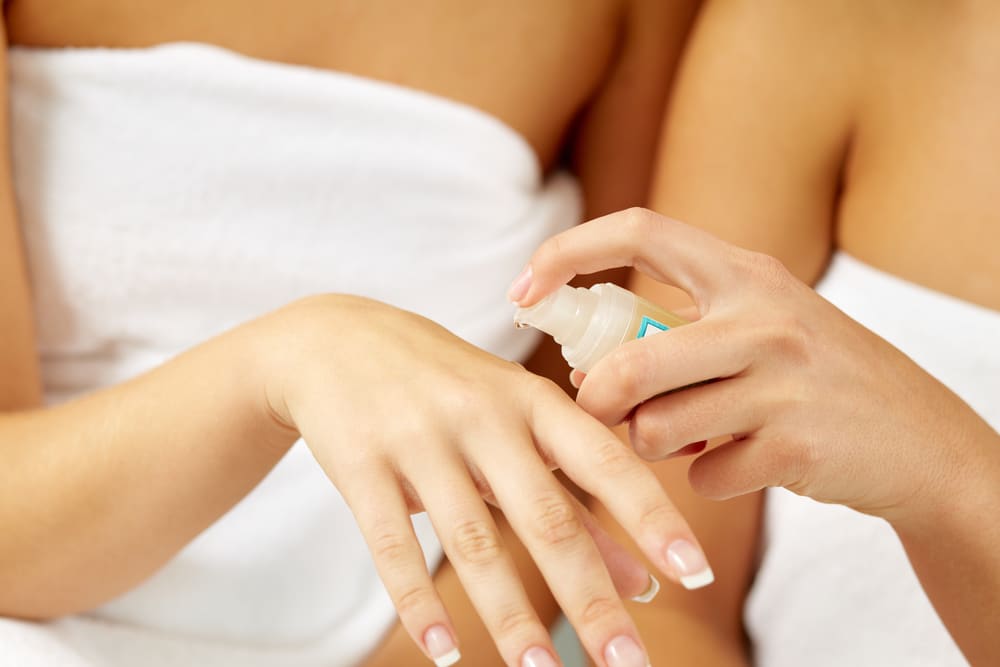
1. Directly on Your Skin
Many like to use essential oils topically all over their body. This is a great way to experiment with oils and does not cost any extra money. Using them on your skin allows you to reap the benefits from smelling them, while at the same time enabling them to enter your bloodstream as quickly as possible. The transdermal properties of the oils should not be overlooked when deciding what works best for your personal preferences.
Points to Remember:
- Essential oils are extremely potent so it is recommended that you dilute them for topical use. If not diluted, some essential oils can cause severe irritation, rashes, itchiness, or an allergic reaction. Eventually, if applied for an extended period, it can cause liver damage called hepatotoxicity. Do not let this discourage you though. There are several safe ways to dilute essential oils so that it is perfectly safe to apply to your skin. The most common way to dilute an essential oil is in another oil called a carrier oil. A carrier oil can be any vegetable oil that you have available. But, the most preferred ones are coconut, avocado, olive, jojoba, sweet almond, and wheat germ. Once diluted, apply directly to the body and add a drop or two of the essential oil mixture on the desired location before bedtime.
- Some common locations you may want try applying essential oils on your skin include the inner wrists, the soles of your feet, behind your ears, on the back of your neck, your chest, your forehead, your hands your fingers, or your toes. The soles of your feet may seem counterintuitive at first since you are trying to inhale the aroma but they can act faster and more efficiently transdermally when applied there. The soles of your feet also have thick skin and are not very sensitive. This makes them less likely to become irritated due to the application of the essential oils. Try gently massaging the oil in to create an added sensation that promotes relaxation.
2. Aromatic Spray
Some folks like to make an aromatic spray with essential oils so that they can distribute it in specific places. To make an aromatic spray add a few drops of the preferred oil to the carrier oil of your choice so that it is properly diluted. Next put in a spray bottle and it is good to go. Just remember that a little goes a long way so use sparingly. Also be careful when spraying on fabrics such as furniture or clothing because some oils can leave a mark on sensitive materials. It is best to sample your mixture on a scrap piece of fabric before spraying something valuable which could potentially be ruined.
3. Diluted in a Cream
Placing a few drops of essential oil into an unscented cream or lotion is a great way to dilute it. This method allows you to get all over coverage that doesn’t rub off easily. The cream will also help to moisturize your body and will last throughout the night. The best time to apply would be after a shower or bath when your skin is moist. This enables your pores to absorb more of the moisture while also allowing you to conserve and use as little as possible.
4. Aromatic Use with a Diffuser
Once you have decided you want to continue using essential oils, it may be best to invest in an essential oil diffuser. There are many diffuser options available on the market and they are easily found due to their popularity. Just add a couple of drops in the diffuser add some water and place it next to your bed. The aroma will consistently continue throughout the night to help you have a more restful sleep. Most of those who have a diffuser highly recommend them and they are continuing to grow in popularity.
5. Diluted in a Bath
There are folks that already choose to take a bath in the evening because of its relaxing properties. The warm water is comforting and it soothes tired or sore muscles and joints. This is actually a great way to enjoy the benefits of essential oils as well. Simply add a few drops of your preferred scent in the bathtub. The water will dilute it safely so you can soak without risk of irritation. If you have time, this is a great option because of the dual benefits you receive from the hot water and the aromatherapy from the oils.
6. Added to Boiling Water and Inhaled
Adding a few drops of essential oil to boiling water and leaning over it to inhale the aroma will also promote the calming effects desired. Take approximately ten, slow, deep breaths and you should begin to feel the oils work their magic. This method works particularly well if you suffer from sleep apnea or you snore. It helps to open and clear your nasal pathways. When your sinuses become unobstructed, your snoring should decrease and you should sleep deeper and feel more rested in the morning.
Where Can I Find Essential Oils for Purchase?
Fortunately, with their ever-growing popularity, you can buy essential oils in many places including pharmacies, health food stores, and of course online. Online is frequently the best way to purchase aromatherapy essential oils because of the availability and often lower prices. There are many reputable brands to choose from and certain users swear by specific ones. The transformative properties of essential oils which allow them to adapt differently to different people means that it is up to you to figure out which brands have the scents you like the best. And, of course, consider the prices. Some of the most popular brands today include Young Living, doTERRA, Eden’s Garden, Aura Cacia, Plant Therapy, Rocky Mountain Oils, and Now essential oils.
Now that you have all of the needed information about aromatherapy essential oils for sleep, have fun and experiment! Remember, what is good for others may not be what is right for you. Don’t be discouraged if you do not notice any immediate effects from using the blend of essential oils. Instead, try different ones and different combinations. Find what works for you and enjoy your journey to better, more restful sleep!
Aside from essential oils, you can read our guide on how to get better sleep by choosing the right mattress.
Additional Resources
- How to Wake Up Feeling Refreshed
- Sleeping on the Couch
- How to Fall Asleep on Adderall
- How to Sleep with Scoliosis
- Everyman Sleep Cycle

